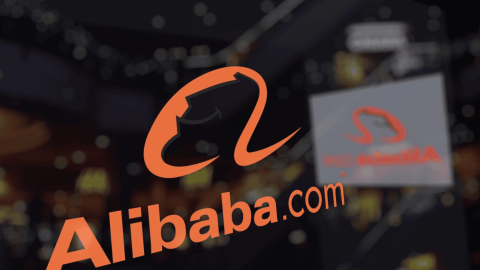Alibaba Unveils $99 AI Subscription with JPMorgan Payment Integration
Alibaba is stepping into a new phase of digital trade innovation with an AI-powered B2B subscription platform integrated directly into Alibaba.com. Priced at $20 per month or $99 a year, the tool will launch in December with the Accio engine, a multimodal AI system for automated supplier matching, price comparison, and logistics. The platform will also feature a blockchain-based payment system developed in partnership with JPMorgan, using tokenized transactions to streamline international trade. The joint initiative marks a notable convergence of e-commerce, AI, and fintech at a global enterprise scale.
Reimagining Global Trade Through Artificial Intelligence
Alibaba’s latest announcement signals a decisive move to reshape the architecture of international commerce. Speaking at the CoCreate Europe event in London, Alibaba.com President Kuo Zhang positioned the new AI subscription service as part of a “complete redesign of global trade operations.”
Priced at $20 per month or $99 annually, the subscription gives business users powerful new tools to locate suppliers, compare prices, and verify compliance within a single interface. Zhang summarized the company’s vision in clear terms: the future of B2B trade lies in harnessing AI to “redesign how people do global trade.”
The system, called AI Mode, will integrate directly into Alibaba.com in December. It blends large-scale data analytics with generative AI to automate the traditionally manual processes of supplier discovery, vetting, and negotiation. The rollout underscores Alibaba’s ambition to deepen its technological leadership in global e-commerce and logistics.
Accio Engine: Advanced Supplier Discovery and Compliance
At the core of AI Mode lies the Accio engine, a sophisticated search and analysis system capable of parsing vast amounts of product data and manufacturing specifications. Unlike traditional supplier databases, Accio can identify unlisted or niche manufacturers based on technical capabilities rather than just product listings.
It employs multimodal AI techniques—combining text understanding, image analysis, and pattern recognition—to deliver tailored supplier matches. For businesses, this means finding partners who may not appear on any conventional search platform, expanding sourcing options in specialized or emerging markets.
The system’s automation covers supplier discovery, logistics coordination, and regulatory compliance verification, easing the burden of international procurement. This capability not only shortens supplier evaluation cycles but also reduces the risks associated with cross-border transactions and inconsistent disclosure standards.
Integrating Blockchain Payments with JPMorgan’s Tokenization System
Alibaba’s AI subscription platform will incorporate a digital payment infrastructure jointly developed with JPMorgan. By leveraging blockchain-based tokenization, the system will allow seamless, verifiable, and near-instant transfers between buyers and suppliers located across different jurisdictions.
According to Zhang, traditional B2B payments often require routing through several banks, adding friction, fees, and processing delays. The new system, by contrast, enables direct digital payments between U.S. or European buyers and Asia-based manufacturers, eliminating the need for intermediary banks.
JPMorgan provides its established tokenization infrastructure, which functions similarly to stablecoins but operates inside the bank’s regulated financial framework. This approach gives users the efficiency of digital settlement without the volatility associated with public cryptocurrencies.
For Alibaba, embedding such a system enhances the credibility and security of its platform; for JPMorgan, it extends the bank’s institutional blockchain ecosystem into the global mid-market B2B trade segment—a demographic long underserved by mainstream banking channels.
Strategic Expansion: JPMorgan’s Dubai Hub and Midcap Focus
Coinciding with the partnership, JPMorgan expanded its presence in Dubai, strengthening its strategic focus on serving midcap enterprises—companies too large for traditional SME services yet smaller than multinational clients. The new Dubai hub will act as a global command center for advising and financing these firms, especially those engaged in cross-border trade.
The timing of Alibaba’s AI Mode and JPMorgan’s Dubai expansion suggests a shared vision: enabling a more fluid global trade network where digital tools close the gap between scale and access. The use of blockchain for settlement aligns with JPMorgan’s long-term initiative to modernize financial infrastructure for mid-tier corporate clients.
Alibaba’s AI Ecosystem and Broader Strategic Context
The lineup of tools joining Alibaba’s expanding AI ecosystem further consolidates its innovations under the Qwen brand, which the company has positioned as the umbrella for large language models and automation technologies across its core businesses—from cloud services to retail logistics.
Recent earnings reports showed a surge in demand for cloud computing, data analytics, and enterprise AI products, demonstrating that buyers are shifting away from one-off services to integrated ecosystems. With the AI subscription embedded within Alibaba.com, the company is deepening the moat between its e-commerce operations and those of competitors.
The introduction of AI Mode not only strengthens Alibaba’s B2B marketplace but also reflects a strategic pivot toward software-based revenue models. Subscription products, rather than transaction-based fees, represent a more scalable and resilient stream of recurring income—an increasingly preferred structure in volatile global trade conditions.
